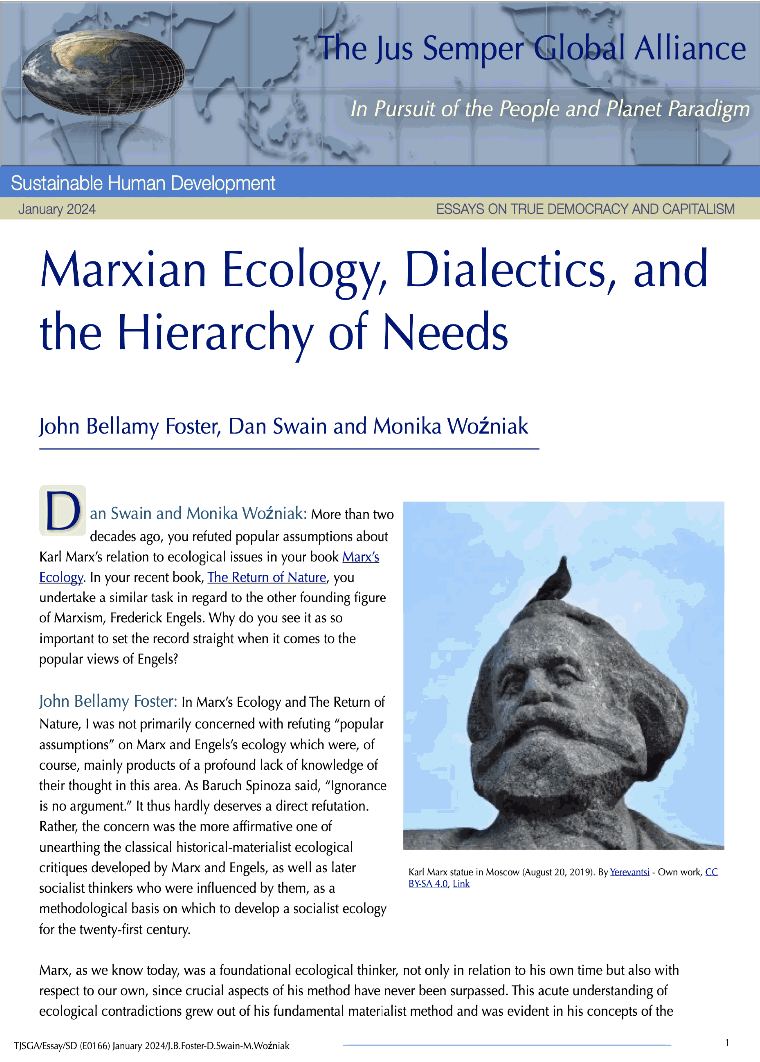Hierarchy of Needs
John Bellamy Foster: In Marx’s Ecology and The Return of Nature, I was not primarily concerned with refuting “popular assumptions” on Marx and Engels’s ecology which were, of course, mainly products of a profound lack of knowledge of their thought in this area. As Baruch Spinoza said, “Ignorance is no argument.” It thus hardly deserves a direct refutation. Rather, the concern was the more affirmative one of unearthing the classical historical-materialist ecological critiques developed by Marx and Engels, as well as latersocialist thinkers who were influenced by them, as amethodological basis on which to develop a socialist ecology for the twenty-first century. Marx, as we know today, was a foundational ecological thinker, not only in relation to his own time but also with respect to our own, since crucial aspects of his method have never been surpassed. This acute understanding of ecological contradictions grew out of his fundamental materialist method and was evident in his concepts of the “universal metabolism of nature,” the “social metabolism,” and the “irreparable rift in the interdependent process of social metabolism” (or metabolic rift). This allowed him, in a way that is unique in ecological thought down to the present, to develop a critique of the political economy of capital that focused on both the social and the environmental contradictions of the mode of production. His analysis in this respect anticipated and, in some ways, influenced the subsequent development of ecological thought. Today, the recovery of his ecological method has attained a real importance with regard to both theory and practice, giving rise to a powerful critique of the planetary crisis of the twenty-first century, underpinning the modern ecosocialist movement.
For a full read of this brief, click here or on the picture to download the pdf file.
|

- © The Jus Semper Global Alliance
| Home |  | Resources |  | Economic Data |  | Marxian Ecology, Dialectics, and the Hierarchy of Needs |


